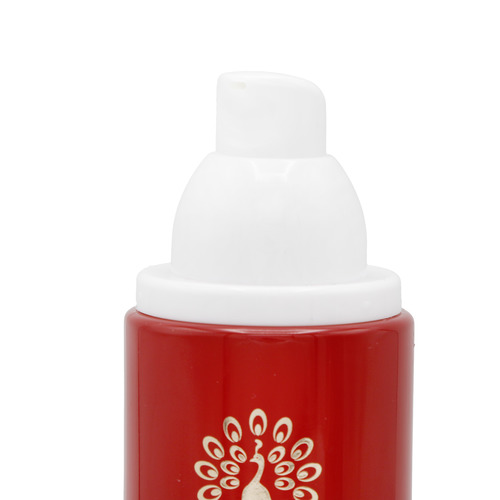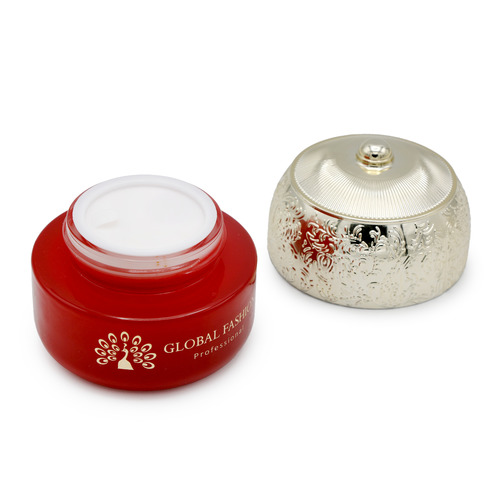If you’re a woman who loves taking care of herself, chances are your shelf is already filled with a whole collection of moisturizing products. Some you bought on the recommendation of friends, others under the influence of social media, and a few you chose consciously, based on your skin’s needs. But the true secret to skincare lies not in the number of jars, but in two key things: knowing and understanding which products suit you best and when it’s time to switch them.
To make navigating this “beauty cabinet” easier, we’ve prepared a review of the two most popular types of moisturizers — creams and gels. Keep reading to find out how they differ and which option will become your best ally in skincare.
What is a facial moisturizing gel?
A hydrating gel is a lightweight, water-based formula that instantly quenches the skin and provides a comfortable feeling. Its texture resembles a true gel: transparent, refreshing, and cool to the touch, while leaving no greasy shine.
These products are especially convenient for those with facial hair, as they spread easily and do not leave a white residue. Thanks to its light consistency, a hydrating gel is ideal for applying under makeup and blends well with other skincare products. It is suitable for all skin types and does not clog pores, unlike oil-based formulas.
Gel formulations most often contain water, hyaluronic acid, and glycerin—ingredients that effectively retain moisture and support the skin’s natural balance.
Moreover, studies show that hydrating gels can help slow the signs of aging. With age, the skin loses its ability to retain moisture, becoming drier, duller, and less firm.
Lightweight gel formulas replenish moisture even in the deeper layers of the skin, improving its texture, elasticity, and natural radiance. Of course, maximum results are achieved with regular use and depend on individual characteristics and the skin’s initial condition.
Lightweight gel formulas replenish moisture even in the deeper layers of the skin, improving its texture, elasticity, and natural radiance. Of course, maximum results are achieved with regular use and depend on individual characteristics and the skin’s initial condition.
What is a moisturizing face cream?
A moisturizing cream helps retain moisture in the skin and is rich in emollient ingredients, which gives it a thicker and more nourishing feel on the face. Unlike lightweight hydrating gels, creams have a denser texture and are not suitable for all skin types. They are especially recommended for people with dry skin: thanks to a combination of emollients, oils, water, glycerin, and hyaluronic acid, the cream strengthens the skin barrier and restores dry, cracked skin.
Creams are particularly beneficial for mature skin. As we age, the skin loses its natural moisturizing factors, and using a cream helps replenish this deficit. In addition, creams are ideal for cold and dry climates, providing reliable protection against the harsh effects of the environment.
What to choose: a moisturizing cream or a gel?
Both products effectively hydrate and protect the skin, but there are important differences between them.
Skin type
If you have dry, mature skin without signs of acne or facial hair, and you’re looking for a product that both moisturizes and fights the signs of aging, a facial cream is the ideal choice.
We recommend the Red Pomegranate ANTI-AGING Face Cream with Vitamin E from Global Fashion. It quickly and effectively smooths wrinkles, prevents excessive melanin production, and promotes cell renewal, slowing down the skin’s aging processes. Its light, non-greasy texture deeply hydrates, replenishes moisture, and improves the condition of dry and dehydrated skin.
If your skin is acne-prone, combination, or oily, and the climate is warm and humid, it’s better to choose a lightweight gel moisturizer.
Research supports this approach: gels may not provide enough hydration for very dry skin, while thicker creams can sometimes clog pores and cause breakouts.
Environmental Factors
In addition to skin type, the effectiveness of moisturizing products—gels and creams—is also influenced by external factors. Depending on the season and your current needs, both types can be used. For example, a moisturizing gel is ideal under makeup in the summer or for acne-prone skin, while a cream is best applied in the evening, especially during the cold winter months, to provide the skin with extra hydration and an overnight anti-aging effect.


